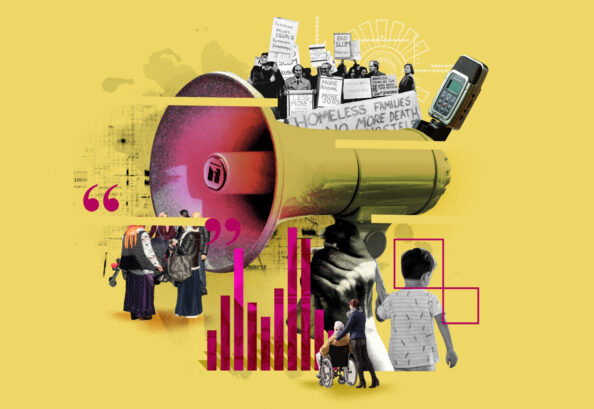Data • Data governance • Completed
Justice Data Matters 2022: Evaluation Report
Tim Davies | 23rd February 2023
Justice Lab commissioned Connected By Data to evaluate the public deliberation exercise that led to the report Justice Data Matters: Building a Public Mandate for Court Data Use. A summary of the report written by Tim Davies, Connected By Data is provided below.
In 2022, Justice Lab, a special initiative of The Legal Education Foundation commissioned Ipsos UK to carry out public attitudes research and a public deliberation exercise about the commercial use of data in court records, and particularly bulk access to court judgments. This was intended to inform the work of the Shadow Senior Data Governance Panel and the governance of data made available through a new Find Case Law service, managed by The National Archives, providing access to court judgments.
This evaluation examines the effectiveness of this project, to understand how to fill gaps in existing research and identify lessons to be learned for similar exercises in the future. We carried out a review of the project reports and documentation, 10 semi-structured interviews with a range of stakeholders, and desk research on other public dialogue and deliberation exercises and recognised best practices. We found that:
- The research generated strong and timely findings on public attitudes towards the governance of digitised court records but in general key audiences regard the report as ‘interesting’ rather than ‘influential’.
- There are significant cultural barriers to be overcome if public participation is to be embedded within the governance of justice system data. Key audiences were open to future public engagement activities, but generally expressed reservations about giving the public a larger formal role in justice data governance.
- Many interviewees generally accepted that there is meaningful public concern about how justice data is used but reflected that this can be explained because the public don’t really understand the justice system. Some perceived the concerns as addressing future challenges rather than current issues.
- The process adopted a well-planned and credible methodology, run by experienced facilitators, with a reasonable scope given the available timeline and resources. However, limited buy-in and engagement from decision makers, a lack of off-the-shelf explainers and other background materials, and limited time and resources for communicating about the public deliberation and its findings have restricted the overall impact of the process.
